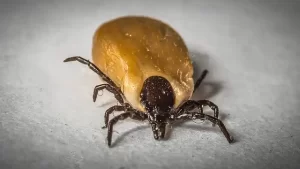Why are children less likely to contract COVID-19 than adults?
- Engineered Soybeans with Pig Protein: A Promising Alternative or Pandora’s Dish?
- Severe Fever with Thrombocytopenia Syndrome (SFTS): A Tick-Borne Threat with High Mortality
- Why Isolating Bananas Extends Their Shelf Life?
- This common vitamin benefits the brain and prevents cognitive decline
- New report reveals Nestlé adding sugar to infant formula sold in poor countries
- Did Cloud Seeding Unleash a Deluge in Dubai?
Why are children less likely to contract COVID-19 than adults?
Why are children less likely to contract COVID-19 than adults?. Reference News Network reported on December 11 that foreign media said that since the outbreak, children have only accounted for a small part of the new coronavirus infection cases. This trend has always puzzled scientists. Now more and more evidence reveals the reason: children’s immune systems seem to be more capable of eliminating the new coronavirus than adults.

According to a report on the website of Chile’s “Third Edition Times” on December 10, Melanie Nilan, an immunologist at the Murdoch Children’s Institute in Melbourne, Australia, said that children’s immune systems will produce rapid and effective immunity after the virus is detected. In response, the viruses are eliminated before they have a chance to replicate themselves so that the virus test results are positive.
Researchers from Columbia University published a report stating that there is currently scientific evidence that children and adults produce different types and numbers of antibodies in response to new coronavirus infections.
The difference in antibodies indicates that children’s infection process and immune response are different, and most children are more likely to clear the virus from the body.
Matteo Porotto, an author of the study, said: “Children’s infection process is much shorter and probably not as extensive as adults.” He also said: “Children can be more effective To eliminate this virus, it is likely that a strong antibody immune response is not needed to eliminate the virus.”
According to the report, one of the most prominent manifestations of the new coronavirus pandemic is that most children are better able to deal with the virus, while the elderly have to start a fierce battle with the virus.
Columbia University immunologist Donna Farber said: “This is a new virus for everyone, but for the first time children can respond to pathogens in a unique adaptive way. This is unique to their immune system. There are many naive T cells in children, which can recognize various new pathogens, while the elderly mainly rely on immune memory. Adults are far less able to respond to new pathogens than children.”



